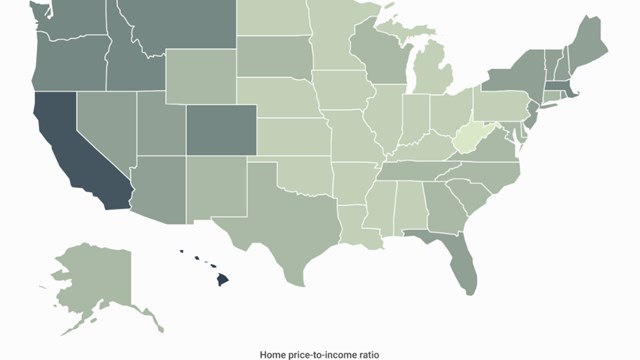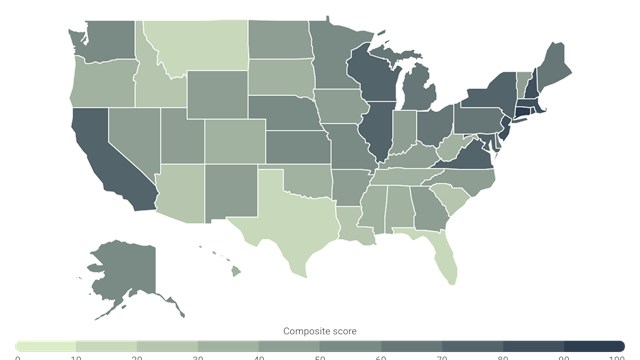Markets rise and fall, and rise again, and fall again—that’s the natural order of things in our economic system. But what about value? Are price and value the same thing? In a word, no. After all, there are lots of ways to define value, many of which have nothing to do with dollars and cents, but which can have very tangible financial impact.
Consider how this can play out in the context of buying or selling a co-op apartment: In times of economic flux—whether positive or negative—there can be a dramatic difference between what your co-op is really worth versus the price it may command on the open market. In a ‘sellers’ market’ like we saw a few years back, prices are driven upward by unusually high demand; sellers often get multiple bids, and ultimately sell their units for more than some would think they’re ‘worth.’
Currently, the inverse of that is true. External factors, including economic uncertainty, high interest rates, and political chaos are pressuring both offering prices and accepted offers for co-op units downward—often well below what they would be in a more stable market. This raises the question for sellers: is that really what my co-op is worth?
Imputed Equity
The short answer (and a bit of an oversimplification) is no.
In appraisal theory there is a concept called imputed equity. Imputed equity refers to the increase or decrease in a property's value due to market forces, such as the market's higher or lower appraisal of the property compared to the purchase price represented by bona fide offers from buyers.
In the simplest terms, say a two-bedroom co-op apartment on Manhattan’s Upper East Side has a valuation of $1 million, based on the apartment’s features and the building’s sales history. Then the economy takes a chaotic turn; sales activity drops. Offers come in for the unit at $800,000. Has the value of the unit actually dropped by 20 percent? Not necessarily.
In the short or immediate run, the seller will likely have to sell at the discounted price. That discount reflects the lower price available in the market to complete a sale—not the actual value of the co-op. The buyer is the beneficiary of the market conditions, as the discounted price is really imputed equity, which will quickly accrue to the new owner when the market returns to equilibrium and asking prices begin to rise again. In other words, the apartment’s true value is $1 million, but circumstances created an opportunity for the buyer to get that value at a lower price point. That’s a market arbitrage.
Holding the Line
Given the interconnectedness of pricing within a given building, this raises the question of whether co-op communities can and should attempt to hold the line on market forces in order to maintain the integrity of their units’ true value against negative market forces.
The answer is a qualified maybe. This predicament is at the heart of Stromberg v. East River Housing Corp., a case currently under adjudication in New York. Basically, the question is whether a co-op board can reject a sale of shares because they believe the price is too low, and are concerned about how that sale will affect other future sales in the building.
In Stromberg, the plaintiff’s board rejected her application to sell her apartment for $520,000. She amended the sales contract to $540,000, but was told by the co-op’s management company that the sales price “was still too low,” and that “the board would not approve a sale with a purchase price lower than $600,000.” Believing that the board’s price floor was arbitrary and an unreasonable restraint on trade, the plaintiff sued the co-op corporation. The co-op moved for summary judgment to dismiss the claim; that motion was denied.
In affirming the motion court’s denial of summary judgment, the court found that while it is permissible for a co-op to consider an apartment’s sales price when deciding to grant or withhold consent to a sale, if the sole factor in the board’s decision is an arbitrary price floor unrelated to the unit’s market value, that could be an abuse of discretion and an unlawful restraint of trade. The case is still in litigation.
William McCraken, a partner with NYC-based law firm Moritt Hock & Hamroff, explains: “Generally speaking, when a proprietary lease is for sale a board can approve or disapprove of the transfer for any reason or no reason, as long as there’s no discrimination and they are acting in good faith. Within those parameters, any decision is protected by the business judge rule. “But good faith action is important here, because if a court decides the board’s actions are an unlawful restraint on trade, then the decision is not protected under the business judgment rule. That’s what the Stromberg case is about. The question is, did the board set an arbitrary price for no reason? And if so, what are the consequences?”
Implications for Sellers
What does that mean for hard-pressed co-op owners and communities who are all trying to protect their investments and property values? With co-op buyers having real-time access to every listing, every sale, and all the related information—which can in turn be incorrectly or badly interpreted—does a co-op board have the ability to control sales based on market-dependent price discounts?
According to McCraken, “As long as it’s acting rationally and in good faith, a board has the option to reject [a sale] based on price. However, if a price floor is determined to be artificial, it might not be defensible in court. If you’re not considering evidence and have unrealistic expectations for what price an apartment can or can’t command, and you’re holding up shareholders who want to sell, you won’t get the result you seek from the courts. There must be evidence that the board is acting in good faith, with a rational basis to prove it. There is a world in which a board’s action on this matter can be justified, but the corporation does run the risk of a court saying it's arbitrary.”
“I would advise co-op boards that reasonable, rational, well-supported policies will hold up in court,” McCracken continues. “Good faith decision-making is okay. Arbitrarily based decision-making is not. If a court recognizes the decision as rational and in good faith, if you’re trying to hold a line at a reasonable and fair number, not a restraint on trade, [a court] will likely defer to the board, and you’ll be successful.”
The key thing to remember is that market forces play a huge factor in price, not value, and panicking in the face of those forces serves only to trigger a ‘race to the bottom’ when it comes to sales. Boards have some discretion in protecting value within the community, and should use it when necessary—but that discretion isn’t unlimited, and must be based in good faith, rationality, and evidence. Shareholders should take that into account when navigating an uncertain, chaotic market like the one many are currently facing.










Leave a Comment